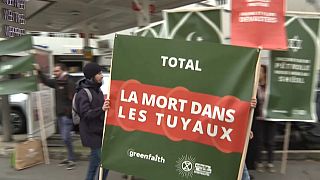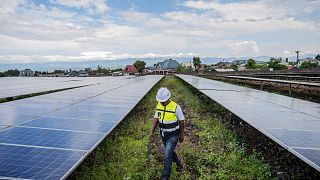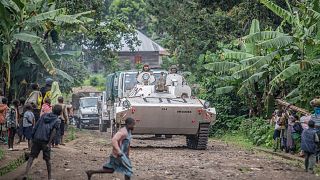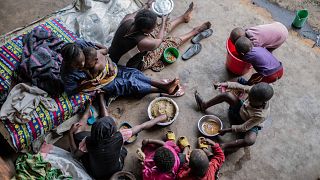Democratic Republic Of Congo
In July, the Democratic Republic of the Congo's government put 30 oil and gas blocks in the country up for auction.
The results of the bidding have yet to be announced, but while of many of the country's politicians and citizens look to cash in on the Central African nation's potentially huge fossil fuel reserves, the auction is also causing uproar among environmentalists.
Thirteen of the blocks cross through protected areas and national parks.
One gas block lies under Lake Kivu, near Goma.
Some of the others are located in the Congo Basin, Africa's largest forest.
It absorbs some 1.5 billion tons of carbon dioxide — about 4% of global emissions — some of which would be released into the atmosphere if the areas are cleared for oil and gas drilling.
Despite its wealth of minerals and biodiversity, the Democratic Republic of the Congo is one of the world's poorest nations and the oil revenue is a tempting prospect.
Resident Jeannette Sifa is proud of her country's natural mineral wealth, but isn't convinced that any drilling will help her.
"What are we going to gain? For example, gas in the lake, oil in the park - how is that going to help us? We know that there is oil in the park, but it will not help us," Sifa said.
Other residents believed the project would benefit the economy and reduce unemployment in communities.
However, environmentalists have warned that the Democratic Republic of the Congo was heading down the wrong path.
Critics point to the oil curse and corruption that has left Nigerians and Angolans in poverty despite decades of production.
Congo's own oil region of Muanda on the Gulf of Guinea has also seen little benefit.
"There was oil drilling since before 1960 in Muanda. What did the people of Muanda get out of it? Poverty, exclusion and even the loss of their land," environmental activist Olivier Ndoole said.
Greenpeace has also warned that communities of Indigenous peoples will inevitably be impacted if the country's forests are transformed for drilling.
The Democratic Republic of the Congo's government has said that the oil and gas block auctioning process "is in line" with development plans and government programs in the country.
It has also previously defended the auctions by stressing the need to diversify the country's cobalt-reliant economy.
The nation is the world's largest cobalt producer.
The Congo Basin is known for its massive reserves of cobalt, lithium and other minerals that, among other uses, are essential for renewable energy technologies such as batteries needed for solar panels.
Amid the auctions, youth climate activists held a march in Goma to raise awareness of environmental issues.
The demonstration also took place ahead of the UN's climate conference, COP27, in Egypt.












02:10
Congo-Rwanda deal: Uncertainty over whether the hostilities will end
00:54
African Human Rights court says it can hear case brought by DRC against Rwanda
01:03
SADC peacekeeping troops begin final phase of withdrawal from east DRC
01:07
WHO says the mpox outbreak remains a public health concern
01:14
DR Congo Justice Minister under fire over $19M transfer
01:10
Senators approve Kabila immunity lift